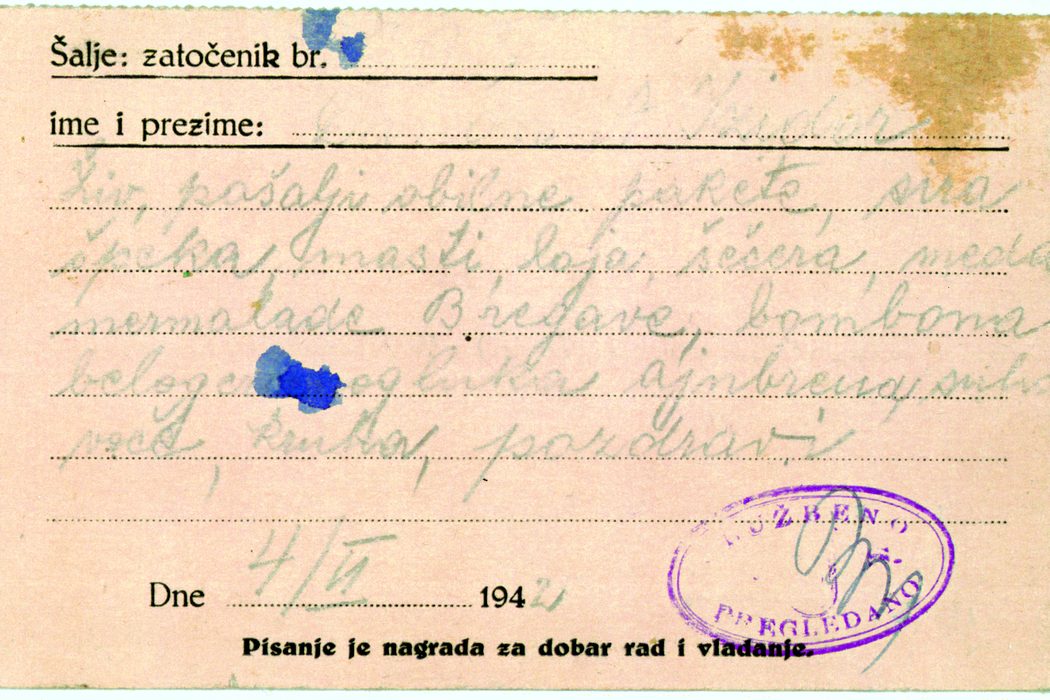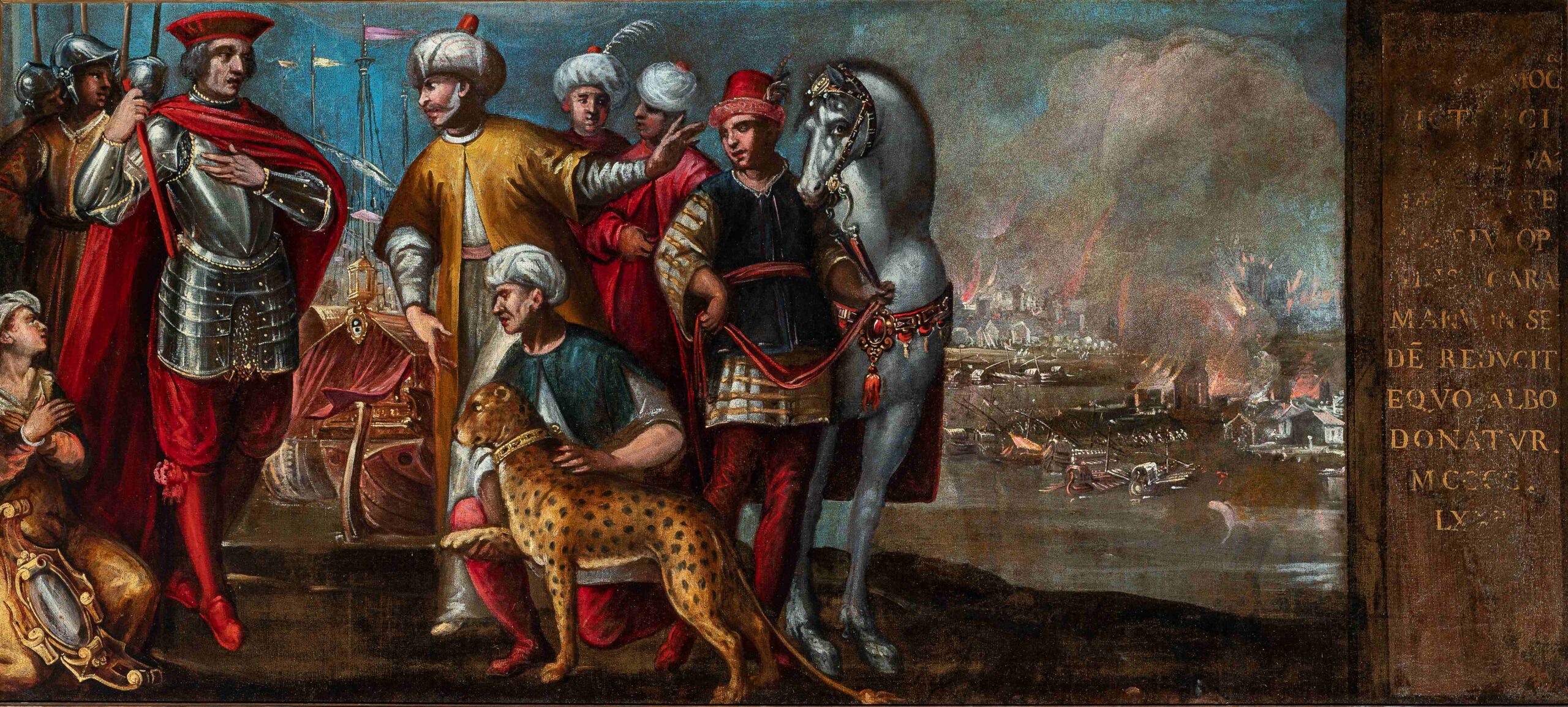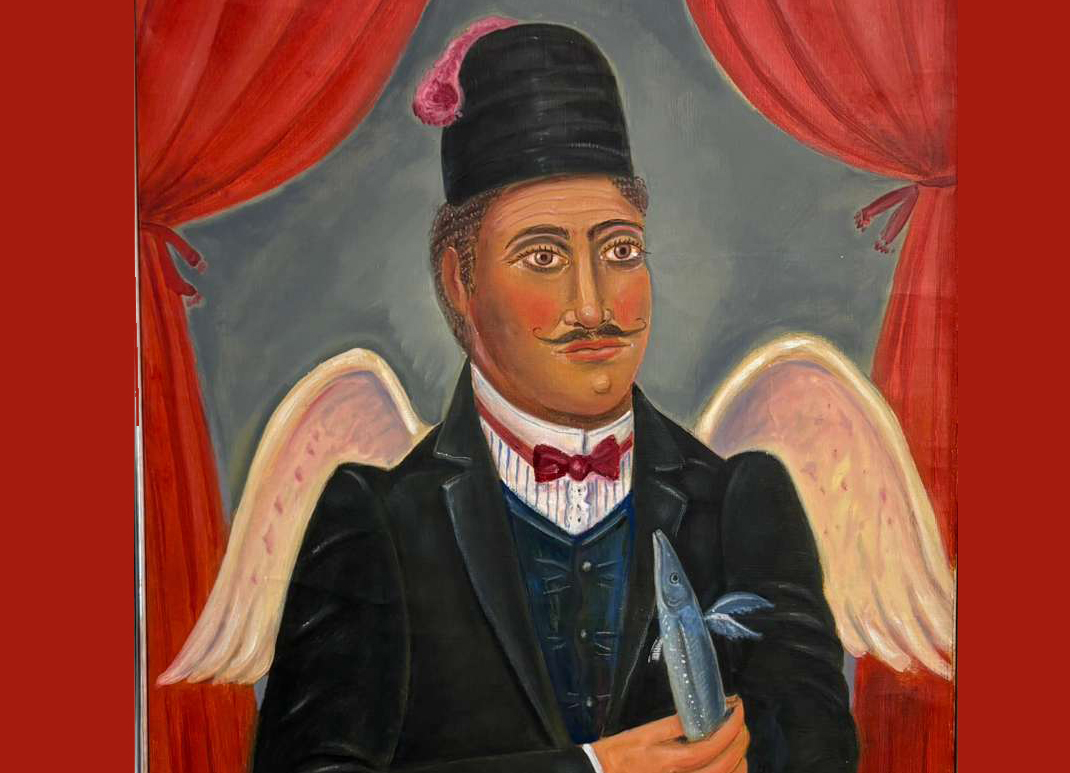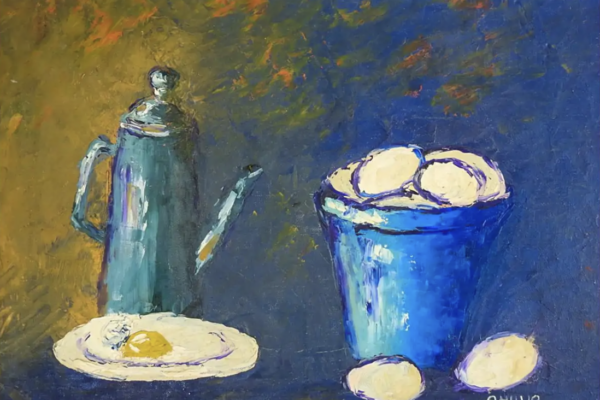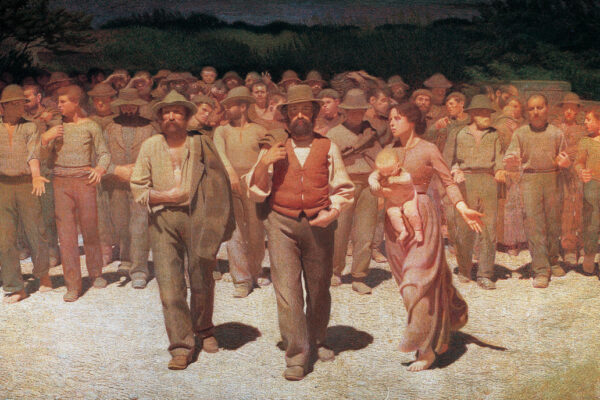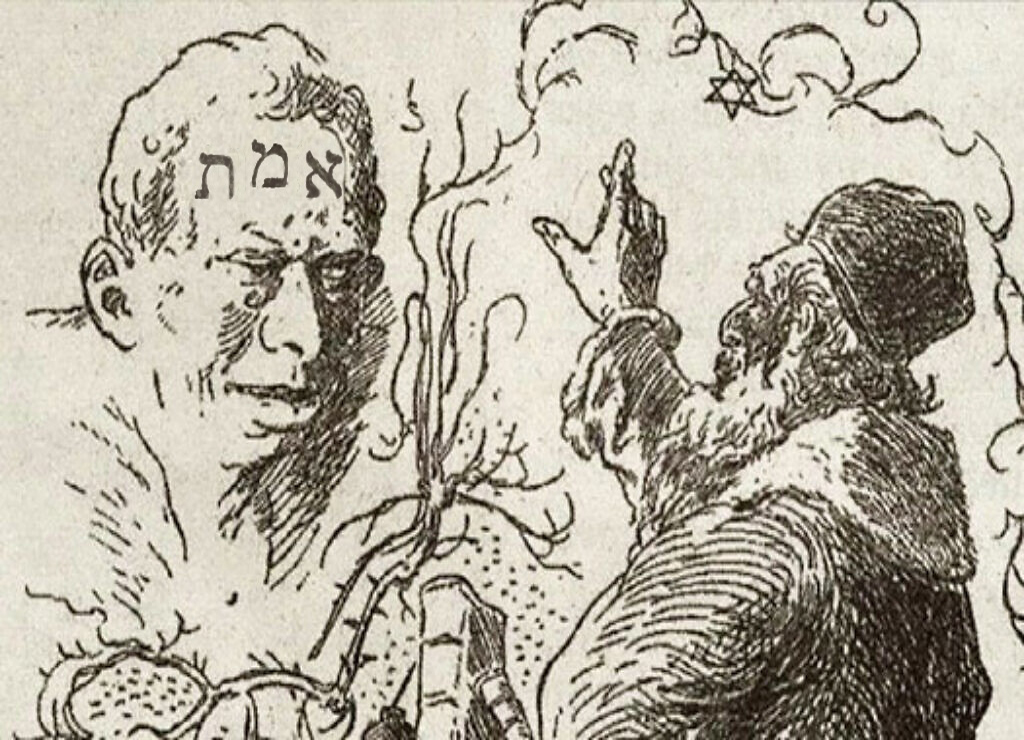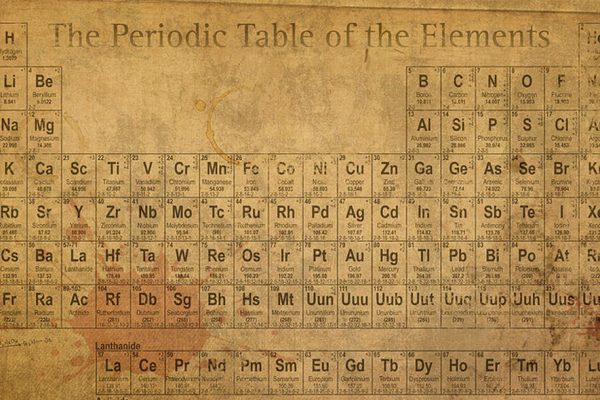Based on a work at arcade.stanford.edu.
In a story from 1976 entitled “Decoding” (Decodificazione), Primo Levi investigates the appearance of swastikas and Fascist graffiti in a small Italian town.[1] Discovering they were made by a disaffected teenager, he writes the following:
I thought about the essential ambiguity of the messages each of us leaves behind, from birth to death, and of our deep inability to reconstitute a person from them, the man who lives departing from the man who writes: anyone who writes, even if only on walls, writes in a code that is his alone, and that the others don’t know; even he who speaks.[2]
Extreme irony is at play here: Levi decoding the Fascist writing on the wall, only to doubt his own legibility, placing the victim of Fascism and its belated enthusiast against the same wall. The inability to understand is at odds with the clarity and sobriety many find in his writing.[3] As I will demonstrate, clarity is a misleading notion in Levi’s work, a patina obscuring a deepening mistrust of communication and representation that characterizes his writing.[4] Though Levi openly championed clarity, especially when discussing “unclear” writers such as Celan and Kafka, he makes plain that this does not mean that such apparent clarity cannot contain the same darkness that is apparent in the cryptic.[5] In other words it is quite possible that language can at once be seemingly clear and yet profoundly disturbing and pessimistic in meaning, as is the case with Levi’s particular use of the language of survival.[6] The language of survival is a strange tongue; it feels the same as the language of the victim and as the language of the enemy but is neither.[7] It is a language whose ordinary speech must be decoded.[8]
The camp, or Lager, is the paradigm of colonial modernity, ground zero of the friend/enemy distinction and place of its collapse.[9]Once in the camp the condition of survival is such that a friend is a miracle, not a category, and enmity is circular rather than binary, partial and implied rather than direct. One trades with the undefeated but shares with the friend, as Levi did with Alberto. The friend/enemy distinction collapses in the camp because it is trivialized by survival, which determines that everybody is an enemy, leaving an ultimate distinction between Muselman and survivor, the drowned and the saved, in its place.[10] Reading Primo Levi it becomes clear that the real enemy, the German SS, hardly ever speaks, and when they do, it is the speech of the Gods, an oracle, interpreted by Kapo priests.[11]
Primo Levi’s speech, and for that matter the speech of all survivors, in all degrees of separation and imaginations, is supposedly the direct speech of the oppressed.[12] The survivor’s voice is conceived as the direct speech of the victim, but such a view is a form of slippage, the survivor’s survival a fetish representing its otherness.[13] By mistaking the voice of the survivor for the voice of the victim, the camp is contained in the world as an accident, not the norm. Surely something meaningful besides luck separates the drowned from the saved. Indeed, it can be fairly argued that much of Levi’s work is about this difference and the inability to contain it within a postwar European and Italian culture bent on denying collaboration.[14] The blurring of the difference between the survivor and the victim restores a facile distinction between friend (victim) and enemy (Nazi) and helps hide the role of complicity in annihilation. If Levi did commit suicide, I believe it was a final, ultimately futile effort to deny this very illusion of a world returned to normality.[15]
The problem of voice, of the directness of the survivor’s speech, its standing in for others, is at the heart of testimony.[16] The betrayal of language was only one of many, but also the most fundamental, as Levi’s account of arrival at the camp demonstrates. It is an incredibly detailed and subtle account, blending an analytical examination of the mechanism with an urgent narrative force that mimetically captures the sense of displacement and utter desolation and dislocation of the prisoner. Levi is acutely aware of the immediate and violent demotion of language, and the direct speech of the camp punctures black holes into the fabric of the text. The first thing Levi realizes is that survival is a language and that to survive, one must become fluent in this language.[17] It turns out that we are all native speakers, even if the Häftling, or inmate, is not Man as he truly is but rather what becomes of him under “severe deprivation,” as Levi maintains.[18] The camp for Levi does not reveal an inherent truth about human nature; it is a “gigantic biological and sociological experiment” that clearly demonstrates what we already know: when there is not enough for everybody, some will have a little (survivors), some a lot (Prominenten), and most will be left to die (Muselmans). Physical need, hunger, and abuse will silence most of what is considered good in humans.
To survive in the camp one has to learn the language, but its learning undoes language itself:
Then for the first time we notice that our language lacks the words to express this offence, the demolition of a man. Suddenly, with almost prophetic intuition, the reality was revealed to us: we have reached the bottom. It is not possible to sink lower than this: a more miserable human condition is unthinkable. Nothing is ours anymore; they have taken our clothes, our shoes, our hair too; if we speak, they will not listen, and if they listen, they will not understand. They will take away even our name: and if we want to keep it, we will have to find in ourselves the strength to do so, that behind the name, something of us, of us as we were, remains.
Even in translation the eerie beauty of Levi’s prose is evident, the perfect amount of detail, observation, and poetic silence touching the profound. Anyone can hear Ulysses in the Cyclops cave being stripped of his name, becoming nobody.[19] The proper name, the foundation of everything that is proper, is taken away, replaced by a number, the improper, impersonal name of a place in a mechanism whose energy is slavery and whose product is death. Whatever can survive behind the name can do so only in a language so utterly different from the language in which it was formed that it is therefore already damned to silence or miscomprehension.
Not unlike Babel, the breakdown of language is itself a driving mechanism of the camp:
The confusion of languages is a fundamental component of the manner of living down here: one is surrounded by a perpetual Babel in which everyone shouts orders and threats in languages never before heard, and woe on whoever fails to swiftly grasp the meaning. Nobody has time here, nobody has patience, nobody listens to you.[20]
The language of survival is learned swiftly or not at all. It is the language of Babel, a punishment for humanity’s use of a universal language to aim at the sky.[21] It is made, not of speech, but of orders and threats, a language so realistic that mimesis loses meaning.[22] Direct speech, or testimony (speaking in place of the dead), is impossible, yet the difference between the language of the Lager and the language of narrative is always lost. Levi can perhaps speak for the survivors, but only indirect speech, figurative discourse, and subtexts can give voice to what is lost.[23] Here, for example, the repeated use of nessuno (“no one” or “nobody”) is the code: the figure of Ulysses in all its complexity reveals the camp as the Cyclops cave and Levi as nobody that has retained and regained his name only to will it away. Unlike Ulysses, he does not take revenge, and his homecoming is never complete. We must decode the narrative to see that the return is an illusion, the proper name hiding its irreparable loss. It is Dante’s Ulysses speaking from the fire, not Odysseus the beggar and returned king.[24]
As Levi visits the fetid latrines he considers the slogans in German recommending hygiene. Signs, like graffiti, are just that, pure signs, the direct speech of nobody, of the camp. Levi is inclined to interpret them as another example of German humor, but Steinlauf, the Austrian veteran, teaches him a lesson:
I have forgotten, and it grieves me, the plain outspoken words, the words of ex-sergeant Steinlauf of the Austro-Hungarian army. Iron Cross of the 14–18 war. It grieves me because it means that I have to translate his uncertain Italian and his measured discourse of a good soldier to my language of incredulous man. But this was the sense not forgotten then nor after: that precisely because the Lager was a great machine to turn us into beasts, we must not become beasts; that even in this place one can survive, and therefore one must want to survive, to tell the story, to bear witness; and that to survive we must force ourselves to save at least the skeleton, the scaffolding, the form of civilization. We are slaves, deprived of every right, exposed to every insult, condemned to certain death, but we still possess one power, and we must defend it with all our strength for it is the last—the power to refuse our consent.[25]
Steinlauf delivers this speech as he is washing himself in the Auschwitz mode Levi finds useless. Hygiene is of the matter directly and indirectly, as Levi disguises the central argument within the mimetic scene. In this book written by the survivor, Steinlauf, almost with his own voice, expounds the doctrine of survival, made worthwhile by the prospect of bearing witness. It is an argument against death, of resistance and defiance justified by the prospect of testimony. Steinlauf’s view of survival as negation of consent is the reason Levi cannot agree with him, since for Levi survival itself is consent, participation in the mechanism that drives the camp, that is the camp. Levi does not declare his position, but the meaning of his inability to agree with Steinlauf, an intuitive insight he keeps referring to, becomes ever clearer in his later work.[26] Testimony is then not the goal of survival but its justification, one bears it, but it justifies and redeems nothing:
Facing this complicated infernal world, my ideas are confused: is it really necessary to elaborate a system and put it into practice? Or would it not be better to acknowledge one’s lack of a system?[27]
Levi does not answer directly, but he rejects the justification of survival with testimony by claiming to lack a system. It is above all a problem of representation, what one needs to do in order to survive and bear witness for those he later realizes he cannot fully represent. Levi’s The Periodic Table—or, closer to the Italian title (Il sistema periodico), The Periodic System—should therefore be understood as an attempt at narrating a countersystem, precisely a periodic one. The survivor’s tale and the signs in the latrines share the incompatibility between language as we know it and the speech of the camp. The difference itself remains unclear and can be explained but never truly understood; nothing escapes the gravity of its realism.[28]
Survival is the direct speech of the camp; it is a language with one word, one concept as langue and an infinite, infinitely unstable parole that are its ways. Survival determines that everybody is the enemy of nobody and that the most irrelevant enemy is the true one (the SS). Levi’s analysis of the camp’s economy is remarkably similar: the SS do not participate in it directly, but they determine its conditions and derive most of the profit (monetary and mortuary). Survival in that sense is a faith of sorts; one must master the language or have extraordinary luck, preferably both, and willing one’s own death is the only form of heresy allowed.[29] Levi’s rendition of the good soldier Steinlauf presents the proximity of language, the almost-spoken word, reporting the lost voice to the world as loss, not redemption, of the memory of Steinlauf. It is a characteristic of the language of survival that all communication must be utilitarian; there is no point talking if it does not promote survival, and Steinlauf’s poeticity stands against the use of his argument.
This is the exact reason Levi also gives for not talking to the Muselmans:
But with the muselmans, the men in decay, it is not even worth speaking. Even less worthwhile is to make friends with them, because they have no distinguished acquaintances in the camp, they do not gain any extra rations, they do not work in profitable Kommandos and they know no secret method of organizing. And in a few weeks nothing will remain of them but a handful of ashes in some nearby field and a crossed-out number on a register.[30]
The “Muslims” are silent; no voice can report the tacit river of death—the true product of the camp. It is a troublesome trope; whatever its origin, it carries traces of the theological and the colonial. Levi’s distinction between the survivor and the victim has vast political implications for the state of the survivors mainly because it cannot be the same as the state of the victims. The survivors’ very survival created their own Muslim victims. What voice a state of the victims would have, we do not know. The very idea of representation is undermined: if the voice of the survivor is a performance of monoconceptual survival, how can we measure the distance of meaning when it is rendered in the same words, though its language is very different? One bears witness by proxy, but how is the distance within proximity made present to the reader?
The text as a figurative code—the text that needs decoding—is one answer; Levi also presents a different code of communication, one that is precisely the same inside and outside the camp: the Commercial Code. In all his writing Levi takes a keen interest in commerce as an alternative language of life, a primal human instinct attributed to the Jews by Fascists and anti-Semites as a particularity. Commerce is an essential part of survival, the need for it as primal as the need to eat. Every prison, every camp, every gulag has a market.[31] Commerce, inside and outside the camp, is based on competition for profit and survival. Still, unlike the code that produced the camp, commerce is not based on the friend/enemy distinction. In the camp the bourse where commerce takes place is not a place of hostilities but of rivalry. One is a competitor in a nonbinary system, with a wide range of flexible interactions and alliances. Commerce, like survival, is a monoconceptual language, profit is its only concept, and the endless ways of the world are its parole.[32]
Commerce in this sense is ultimately not that different from survival, and in the end it leads to similar consequences; but it is a kinder, gentler language than survival, and incomprehension means loss, but not of life. It is the Odyssey against the Iliad, brutal but not as uselessly so.[33]
Chemistry for Levi is a profession, a trade, a figurative system, and a form of commerce. Molecules trade and procure matter from one another; Levi himself used the knowledge of his trade to survive before, after, and during the war.[34] There is no redemption in commerce; in fact, it reaches a similar aporia as surviving in order to testify. In order to survive in the camp one must be complicit with the system of the camp, in which survival of the few facilitates the death of the many. In commerce, there is always the possibility of mutually beneficial trade, but without regulation the largest will always destroy the many smaller (weaker) competitors. Nevertheless, commerce is a fundamental aspect of the camp that the reader can understand: it is the same in and out of the camp. It is the camp in the world. In If This Is a Man the chapter named after Nietzsche, “This Side of Good and Evil,” provides a magnificent anatomy of the camp economy reaching the point where the sameness of commerce in and out of the camp opens into the uselessness of our everyday language and concepts to provide a true understanding of the camp:
We now invite the reader to contemplate the possible meaning in the Lager of our words “good” and “evil,” “just” and “unjust.” Let each of us judge … how much of our common moral world could survive beyond this side of the barbed wire [al di qua del filo spinato].[35]
The question Levi poses for the reader is not limited to the kind of commerce that takes place in the camp but applies to the very exchange that takes place between the reader and the writer, the survivor and the world he has survived into. The survivor is rewarded with the ability to testify, to achieve the justification of survival, at least in the terms introduced by Steinlauf: to survive in order to bear witness. The reader, it would seem, is rewarded with the feeling of redemption, of living in a world that has overcome the evil the survivor has survived. Reading about Steinlauf and the many characters Levi mentions can be mistaken for redemption of their loss, their presence among us, and the salvation of their memory.
Suicide in this sense would indicate a rebellion against the trade-off. It is almost as if in this trade the survivor is awarded the famed prize in the pie-eating contest: more pie, like Dante’s Ulysses telling the agonizing tale over and over in flames. In all discourses and languages, suicide is the ultimate refusal, a negation of the world, a period ending the periodic system. The very system that allows a period of life, of writing, of joy, and of profit is like a Ponzi scheme and is based on the “survivor fallacy”: obscuring the distance between the drowned and the saved, ignoring the incompatibility of languages that allow one to stand in for another. Inevitably, like other systems based on such fallacies, it reaches bankruptcy.
-
Primo Levi, Opere, 3 vols. (Turin: Einaudi, 1990), 2:561–68. ↩
-
Ibid., 2:567. ↩
-
Perhaps the best example is the interpretative biography of sorts by Ernesto Ferrero, Primo Levi: La vita, le opera (Turin: Einaudi, 2007), 37. ↩
-
Lawrence R. Schehr, “Primo Levi’s Strenuous Clarity,” Italica 66, no. 4 (1989): 429–43. ↩
-
See Levi, Opere, 3:633–39. ↩
-
On the subject, see Robert Gordon and Marco Belpoliti, “Primo Levi’s Holocaust Vocabularies,” in The Cambridge Companion to Primo Levi, ed. Robert S. C. Gordon (Cambridge: Cambridge University Press, 2007), 51–66. ↩
-
On Levi’s languages, see Anna Laura Lepschy and Giulio Lepschy, “Primo Levi’s Languages,” in Gordon, Cambridge Companion to Primo Levi, 121–36. ↩
-
Daniela Accadia, “La lingua nei campi nazisti della morte in i sentieri della ricerca,” Rivista di storia contemporanea 9–10 (2009): 13–68. ↩
-
This of course brings together Foucault and Agamben on the camp and the camp’s role as a paradigm of modernity, but both, conveniently, ignore the colonial aspect of that very modernity. See Giorgio Agamben, Homo Sacer (Turin: Einaudi, 1993), 147–49; and Zygmunt Bauman, Modernity and the Holocaust (Ithaca, NY: Cornell University Press, 2001), 31–60. ↩
-
These are not homologous concepts, but clearly they go beyond the friend/enemy distinction toward a different conception of the world, which does not preclude friendship. See Robert S. C. Gordon, Primo Levi’s Ordinary Virtues: From Testimony to Ethics(New York: Oxford University Press, 2001), 219–36. ↩
-
On the theological residues of the camp, see Gil Anidjar, The Jew, the Arab: A History of the Enemy (Stanford: Stanford University Press, 2003), 138–46. ↩
-
Alessandra Miklavcic, “Slogans and Graffiti: Postmemory among Youth in the Italo-Slovenian Borderland,” American Ethnologist35, no. 3 (2008): 440–53. ↩
-
M. Hirsch, “The Generation of Postmemory,” Poetics Today 29, no. 1 (2008): 103–28. ↩
-
For an account of the time in the context of Levi’s work, see Ann Goldstein and Domenico Scarpa, In un’altra lingua (Turin: Einaudi, 2015), 83–99. ↩
-
Jonathan Druker, “On the Dangers of Reading Suicide into the Works of Primo Levi,” in The Legacy of Primo Levi, ed. Stanislao G. Pugliese (New York: Palgrave Macmillan, 2005), 221–31. ↩
-
Shoshana Felman, “Theaters of Justice: Arendt in Jerusalem, the Eichmann Trial, and the Redefinition of Legal Meaning in the Wake of the Holocaust,” Critical Inquiry 27, no. 2 (2001): 201–38. ↩
-
Donatella Chiapponi, La lingua nei lager nazisti, preface by Brunello Mantelli (Rome: Carocci Editore, 2004), 63–65. ↩
-
Primo Levi, Se questo è un uomo (Opere, 1:88–89). ↩
-
Piero Boitani, The Shadow of Ulysses: Figures of a Myth (New York: Oxford University Press, 1994), 4. ↩
-
Levi, Survival, 38 (Opere, 1:39). ↩
-
I am referring to Derrida’s reading of the biblical story. See Michael Collins, “‘If the Kings of the Universe Were a Friend’: Amity and Communication in Dante and Derrida,” Modern Philology 106, no. 3 (2009): 429. ↩
-
This is one of many fascinating observations by Jean Améry. See Jean Améry, At the Mind’s Limits: Contemplations by a Survivor on Auschwitz and Its Realities (Bloomington: Indiana University Press, 1980), 18. ↩
-
This does not mean that all testimony is about the inability to testify, as Agamben would have it. See Giorgio Agamben, Remnants of Auschwitz: The Witness and the Archive (New York: Zone Books, 1999), 144–46. ↩
-
Uri S. Cohen, “Consider If This Is a Man: Primo Levi and the Figure of Ulysses,” Jewish Social Studies 18, no. 2 (2012): 40–69. ↩
-
Levi, Survival, 41 (Opere, 1:35). ↩
-
This position is clearly stated in Levi’s later work. See, for example, the tortured poem “Il superstite” (The survivor), in Opere, 2:581. See also Judith Wolf, “From ‘If This Is a Man’ to ‘The Drowned and the Saved,’” in Gordon, Cambridge Companion to Primo Levi, 43. ↩
-
Levi, Survival, 41 (Opere, 1:36). ↩
-
See Irène Heidelberger-Leonard, The Philosopher of Auschwitz: Jean Améry and Living with the Holocaust (London: I. B. Tauris, 2010); and W. G. Sebald, On the Natural History of Destruction (New York: Random House, 2003), 147. ↩
-
This is the true meaning of the alternative—to run to the electric fence—repeatedly presented to the Häftling upon entry and repeated in testimony. See David Lester, Suicide and the Holocaust (New York: Nova Science, 2005), 108–16. ↩
-
Levi, Survival, 89 (Opere, 1:91–92). ↩
-
One of the most harrowing descriptions of such a market is from World War I and can be found in Claude Simon, Flanders Road; see Claude Simon, La route des Flandres (Paris: Editions de Minuit, 1960), 170–74. See also Rebecca Haynes, “Woks Camps, Commerce, and the Education of the ‘New Man’ in the Romanian Legionary Movement,” Historical Journal 51, no. 4 (2008): 943–67. ↩
-
This is not an observation on the nature of economics but rather a literary conception of commerce in a “transactional world.” See Paul Keen, Literature, Commerce, and the Spectacle of Modernity, 1750–1800 (Cambridge: Cambridge University Press, 2012), 78–82. ↩
-
See Levi’s stark preference for the Odyssey over the Iliad in his La ricerca delle radici (Turin: Einaudi, 1997), 19. ↩
-
Daniele Orlandi, Le chimiche di Primo Levi (Rome: Odradek, 2013). ↩
-
Levi, Survival, 86 (Opere, 1:87). ↩


